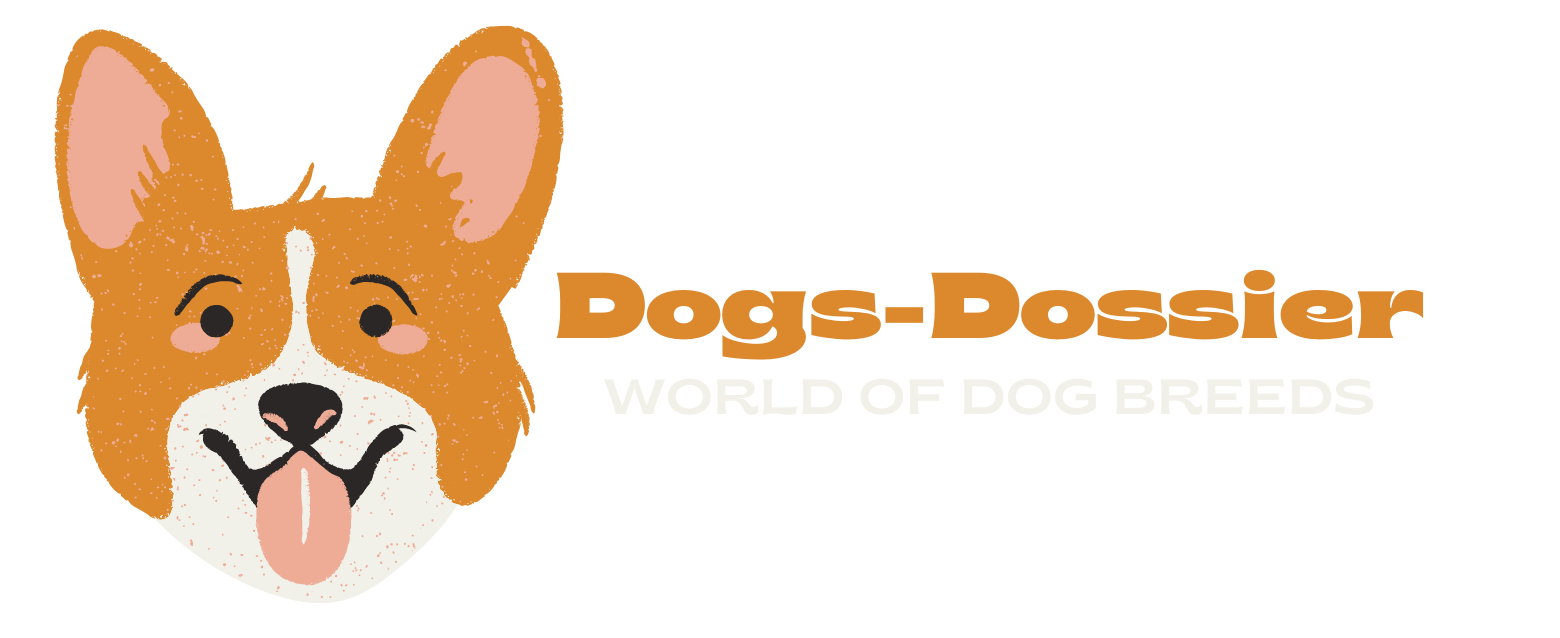How Much to Feed a Beagle? Comprehensive Guide
Feeding your Beagle the right diet is crucial for their health and happiness. In this article, we’ll explore everything you need to know about meeting your Beagle’s nutritional requirements.
From how much to feed them to what foods are safe (and unsafe), we’ll cover it all. Let’s dive in and ensure your Beagle gets the nourishment they need for a vibrant life.
How Much To Feed a Beagle?
Determining how much to feed your Beagle depends on several factors such as their age, weight, activity level, and metabolism. As a general guideline, adult Beagles typically require around 25-30 calories per pound of body weight per day to maintain their weight.
It’s important to consider portion sizes and avoid overfeeding, as Beagles tend to gain weight easily. Dividing their daily food intake into two meals, spaced out evenly throughout the day, helps regulate their metabolism and prevent overeating.
Consulting with a veterinarian or a canine nutritionist can provide personalized recommendations based on your Beagle’s specific needs and dietary requirements.

What Not to Feed Your Beagle?
While it’s important to know what to feed your Beagle, it’s equally crucial to be aware of foods that are harmful or toxic to them. Avoid feeding your Beagle foods such as chocolate, grapes, raisins, onions, garlic, and products containing xylitol, as these can be poisonous to dogs.
Additionally, refrain from giving your Beagle bones, particularly cooked bones, as they can splinter and cause choking or internal injuries. Avoid feeding table scraps or foods high in fat, salt, or sugar, as these can lead to obesity and other health issues.
Always read ingredient labels carefully and consult with a veterinarian if you’re unsure about the safety of certain foods for your Beagle.
Understanding Your Beagle’s Nutritional Needs
Beagles, as medium-sized dogs, require a balanced diet rich in essential nutrients to maintain optimal health. Their nutritional needs vary based on factors like age, size, and activity level. For instance, puppies need diets higher in protein and calories to support growth and development.
Adult beagles typically thrive on diets that provide a balance of protein, carbohydrates, fats, vitamins, and minerals. It’s crucial to choose high-quality commercial dog food or formulate homemade diets under the guidance of a veterinarian or canine nutritionist.
Regular monitoring of your beagle’s weight and body condition is essential to adjust their diet as needed. Consulting with a professional ensures your beagle receives the right nutrition throughout their life stages, promoting longevity and well-being.
Importance of Proper Nutrition
Proper nutrition is fundamental for the health and longevity of beagles. A balanced diet supports their growth, energy levels, immune system, and overall well-being. Without adequate nutrition, beagles may experience health issues like obesity, malnutrition, and weakened immune function.
Providing high-quality commercial dog food or a well-formulated homemade diet is essential.
Avoiding table scraps and excessive treats helps prevent nutritional imbalances and weight problems. Regular veterinary check-ups ensure your beagle’s nutritional needs are being met and address any concerns early on.
Prioritizing proper nutrition sets the foundation for a healthy and happy life for your beagle, enhancing their vitality and quality of life.
Factors Affecting Beagle’s Dietary Requirements
Several factors influence the dietary requirements of beagles. These factors include age, size, activity level, metabolism, and health status.
For example, puppies have higher energy and nutrient needs for growth and development, while senior beagles may require fewer calories to maintain a healthy weight.
Active beagles involved in regular exercise or working activities may need more calories to fuel their energy expenditure. Conversely, less active or sedentary beagles may require fewer calories to prevent weight gain.
Understanding these factors allows pet owners to tailor their beagle’s diet accordingly.
Consulting with a veterinarian helps determine the appropriate diet plan based on individual needs, ensuring optimal nutrition for your furry companion.
Ideal Weight for Beagles
Maintaining an ideal weight is crucial for the health and well-being of beagles. Obesity is a common issue among beagles, which can lead to various health problems such as joint issues, diabetes, and heart disease.
The ideal weight for a beagle depends on factors such as age, breed standards, and body condition. Veterinarians use tools like body condition scoring to assess a beagle’s weight and body composition accurately.
Pet owners can help their beagles maintain a healthy weight by providing a balanced diet, regular exercise, and monitoring their food intake. Consulting with a veterinarian ensures your beagle stays at an optimal weight, promoting a longer and happier life.
Determining the Right Amount of Food
Determining the right amount of food for your beagle is crucial for their health and well-being. Factors such as age, size, activity level, and metabolism play a significant role in determining their dietary requirements.
As a general guideline, adult Beagles typically require about 1.5 to 2 cups of high-quality dog food per day, divided into two meals. However, this can vary depending on individual factors.
Feeding puppies may require more frequent meals and higher calorie intake to support their growth and development. Conversely, senior beagles may need fewer calories to prevent weight gain and maintain muscle mass.
Consulting with a veterinarian helps determine the appropriate portion sizes and feeding schedule for your beagle, ensuring they receive the right amount of food to thrive.
Creating a Feeding Schedule
Establishing a consistent feeding schedule is essential for your beagle’s health and well-being. A regular feeding routine helps regulate their metabolism, prevents overeating, and promotes healthy digestion.
Ideally, adult beagles should be fed two meals a day, spaced out evenly throughout the day. Puppies may require more frequent feeding, with three to four meals a day, to meet their higher energy needs.
Consistency is key when creating a feeding schedule for your beagle. Try to feed them at the same times each day and avoid free-feeding, which can lead to weight gain and irregular eating habits.
Monitoring your beagle’s weight and body condition helps ensure they are receiving the right amount of food. Adjustments to their feeding schedule may be necessary based on their individual needs and activity level.
What foods are Beagles allergic to?
Beagles, like other dogs, can be allergic to certain foods. Common food allergens for Beagles include grains such as wheat, corn, and soy, as well as proteins like beef, chicken, and dairy.
Signs of food allergies in Beagles may include itching, scratching, redness, inflammation, gastrointestinal upset, and ear infections.
If you suspect your Beagle has a food allergy, consult with a veterinarian to identify the allergen and make dietary changes accordingly.
Do Beagles require a lot of food?
Beagles have a moderate appetite and do not typically require excessive amounts of food. However, it’s essential to provide them with balanced meals that meet their nutritional needs and maintain a healthy weight.
Avoid overfeeding your Beagle, as they are prone to obesity, which can lead to various health issues. Consult with a veterinarian to determine the appropriate portion sizes and feeding schedule for your Beagle based on their age, weight, and activity level.

Common Mistakes to Avoid
While feeding your beagle, there are several common mistakes to be aware of to ensure their nutritional needs are being met.
One common mistake is overfeeding, which can lead to obesity and related health issues. It’s essential to measure portion sizes carefully and avoid feeding table scraps or excessive treats.
Another mistake is not providing balanced nutrition. Beagles require a diet that includes a proper balance of protein, carbohydrates, fats, vitamins, and minerals to thrive. Avoid feeding them only one type of food or relying solely on treats.
Inconsistency in the feeding schedule is also a common mistake. Stick to a consistent feeding routine to establish healthy eating habits for your beagle and prevent digestive upset or behavioral issues.
Expert Tip
“Veterinary experts recommend feeding Beagles high-quality dog food tailored to their specific needs. Establishing a consistent feeding schedule and monitoring portion sizes is key to preventing obesity and promoting overall health. Remember, moderation and balance are essential for a happy, healthy Beagle.”
FAQs: Beagles Feeding
How often should I feed my beagle?
Adult beagles should ideally be fed two meals a day, spaced out evenly. Puppies may require more frequent feeding, with three to four meals a day, to support their growth and development.
Can I give human food to my beagle?
While some human foods are safe for beagles in moderation, it’s best to stick to a balanced diet formulated specifically for dogs. Avoid feeding them foods that are toxic or high in fat, sugar, or salt.
How do I know if my beagle is overweight?
You can assess your beagle’s weight by feeling their ribs and observing their body shape. A healthy weight for a beagle should have a defined waistline and be easily felt but not visible.
Should I consult a vet for my beagle’s diet?
Yes, consulting with a veterinarian or a canine nutritionist can help ensure your beagle’s diet meets their specific needs. They can provide personalized recommendations based on your beagle’s age, weight, activity level, and health status.
What are some healthy treats for beagles?
Healthy treats for beagles include fruits like apples and berries, vegetables like carrots and green beans, and commercial dog treats formulated for their dietary requirements. Avoid giving them foods that are high in fat, sugar, or salt.
How many times a day should I feed my Beagle puppy?
Beagle puppies should ideally be fed three to four meals a day to support their growth and development.
Can I give table scraps to my Beagle?
It’s best to avoid feeding table scraps to your Beagle, as they can be high in fat, salt, and other harmful ingredients.
Is wet food or dry food better for Beagles?
Both wet and dry food can be suitable for Beagles, but it’s essential to choose high-quality options that meet their nutritional needs.
Why is my Beagle always hungry?
Beagles may always seem hungry due to their food-driven nature, but it’s important to stick to a regular feeding schedule and avoid overfeeding.
Do Beagles have specific dietary requirements due to their size?
While Beagles don’t have specific dietary requirements due to their size, it’s essential to provide them with balanced meals that meet their nutritional needs.
How do I know if my Beagle is overweight?
You can assess your Beagle’s weight by feeling their ribs and observing their body shape. A healthy weight for a Beagle should have a defined waistline and be easily felt but not visible.
Can I feed my Beagle a vegetarian or vegan diet?
Beagles are carnivores by nature and require animal-derived protein to meet their nutritional needs. A vegetarian or vegan diet may not provide all the essential nutrients they need.
How much water should a Beagle drink daily?
Beagles should have access to clean, fresh water at all times. The amount of water they drink can vary based on factors such as temperature, activity level, and diet.
Are there foods I should avoid giving my Beagle?
Yes, certain foods such as chocolate, grapes, onions, garlic, and products containing xylitol can be toxic to Beagles and should be avoided.
My Beagle has food allergies. What alternatives can I explore?
If your Beagle has food allergies, consult with a veterinarian to identify the allergen and make dietary changes accordingly. Consider switching to hypoallergenic or limited-ingredient diets to alleviate symptoms.
Conclusion
In conclusion, understanding your beagle’s nutritional needs is essential for their health and well-being. By providing a balanced diet, determining the right amount of food, and creating a consistent feeding schedule, you can ensure your beagle receives the nutrition they need to thrive.
Regular monitoring of their weight and body condition, along with consulting with a veterinarian or a canine nutritionist, helps ensure their dietary needs are being met throughout their life stages. By prioritizing proper nutrition, you can help your beagle live a long, healthy, and happy life.





